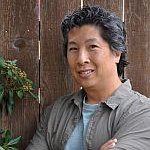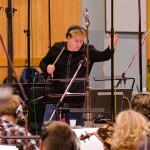
Guest Post: Controlling Your Own Luck
I am of the opinion that one cannot control exactly how or where their “break” comes from. It could be a film that hits… being at the right place at the right time, etc… But once a “break” happens, one can control if they can sustain or even build a career from it. Talent is certainly needed to sustain a career from a break. (And I am not only talking about musical talent).
Things one can NOT control:
If you actually get hired on a project or not.
If a film is deemed a “financial success” at the box-office.
If a film you are on is marketed properly so the masses will be aware of it.
If a film you are on is released theatrically.
If a TV pilot you are on gets picked up for series.
If millions of people click on your YouTube web series.
Things one CAN control:
If the music you write is appropriate for the film.
If you create music unique to your abilities that everyone wants.
If your score themes are memorable.
If you have an easy to work with demeanor.
If you communicate effectively with your team.
If you handle promotion of yourself well.
If you are present in the industry and build a network of people.
If you have a likable personality.
If you treat people with respect.
If you have integrity.
If you deliver on time and on budget.
If you create drama or a sense of collective calm.
If you present yourself well online.
If you have an active social media presence.
If you understand the emotional essence of a project in front of you.
If you are amazing at creating MIDI recordings/demos.
If you are trustworthy.
If you take a meeting well.
If you know your music theory.
If you build relationships with musicians who can play for you in order to breathe life into your music.
If you are good at stretching a music budget.
If you decide to take risks or play your career path conservatively.
If you assist another composer.
If you go it on your own and just start scoring indie films.
If you take rejection well and define it as a good or bad thing.
If you have an ego.
If you are argumentative.
If you formally study composition or not.
If you continue to play and perform on your instrument or only compose.
If you run the day to day operations of your “business” well.
If you write every day to get better or not.
If you use a lawyer to protect yourself legally in your contracts.
If you send out multiple emails daily to potential projects.
If studio and network music executives even know who you are.
If you even recognize that a break has happened.
If you….
In the end… there are things one certainly cannot control in this biz. As I mentioned above and to reiterate on one… I cannot control whether the show I am on it going to be a hit show. I can only control the notes I write and if the score I produce is effective and musically doing what it needs to be doing for the project. But in general… it seems to me the list of things one CAN control in their careers is much longer than the list of things one CANNOT control. Many of those things can lead to a “break” or put you in a much better position to taking advantage of a break when it happens. And I would not necessarily call the items in the “Can do” list LUCK.
![]()
 Brian Ralston Brian Ralston is a Los Angeles film/television composer whose credits include the 20th Century Fox lacrosse film Crooked Arrows (2012) starring Brandon Routh, the action thriller Awaken (2015) starring Daryl Hannah, Vinnie Jones, and Natalie Burn, the Magnolia Pictures bank heist film Graduation (2008), and additional music in season four of the WB Television production Angel (2004). Mr. Ralston is also a long-time co-host of the SCOREcast podcast, a popular industry-insider radio show for film and television composers and an instructor in UCLA Extension’s film scoring program. |
|
|




 Hollywood Music Award-winning and BAFTA nominated composer
Hollywood Music Award-winning and BAFTA nominated composer 

